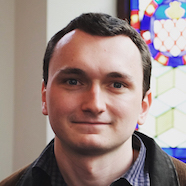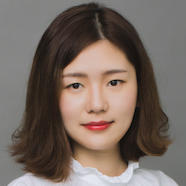Contact
For further information contact our MA (Coursework) co-ordinator at
Email MACoursework@otago.ac.nz
An internationally-recognised master's degree designed to give students skills sought after by employers
- The Master of Arts (Coursework) programme is designed to give students the skills sought after by employers around the globe, with a balance of specific subject knowledge plus broad-based transferable skills – such as oral and written communication, and analytical skills
- It will take either 12 months or three semesters of full-time study to complete
- It is internationally recognised and will enable you to travel and work, or continue studying, overseas
- It can be studied part-time
What does the Master of Arts (Coursework) look like?
The programme includes the following papers:
| Papers | Number of points needed | Details about the papers |
|---|---|---|
| HUMS papers | 60 points | 2 x 30-point Humanities (HUMS) papers |
| Subject papers | 60 points | Either 400- or 500-level papers in your major as outlined for participating programmes |
| Subject dissertation paper | 60 points |
Dissertation length – up to 20,000 words Undertaken over 12 months, beginning either at the start of semester one or semester two |
The dissertation (a single project under the guidance of an appointed supervisor) is completed over 12 calendar months, starting either in semester one or semester two.
The Master of Art (Coursework) can be completed in 12 months of full-time study (February to February if started in semester one, or July to June if started in semester two). Alternatively students can spread the programme of study over three semesters (that is, 18 months) of full-time study.
What are the entry requirements?
The Master of Arts (Coursework) is mainly available to students who have completed a Bachelor of Arts (BA) with a B+ average in their 300-level papers. Students who have completed an undergraduate degree in the cross-divisional subjects (such as psychology, maths, computer science) could also be eligible.
If your grades are close to a B+ but you have other relevant experience, or you are unsure about whether your grades meet the entry criteria, or have any other questions, contact us.
Email MACoursework@otago.ac.nz
Students will continue study in the major subject of their Bachelor of Arts. (Programmes may limit how many students they take on, depending on the availability of supervisors.)
What are the HUMS papers?
The HUMS papers will give you the opportunity to mix with other Humanities students studying a wide range of subjects. They are also designed to give you the broad range of knowledge and skills valued by many employers.
Currently there are three HUMS papers on offer, from which you will need to pick two.
All HUMS papers are 30 points.
HUMS 501 Writing and Revision for Graduate Research
This paper provides graduate research students with the theoretical and practical tools they need to achieve effective communication of their academic ideas in both print and other media.
Contact person: shef.rogers@otago.ac.nz
(Host programme: English and Linguistics)
HUMS 502 Research Methods in the Humanities
Students will examine key principles of research in the humanities, develop a broad understanding of a range of methods and refine skills in a method of their choice.
Contact people: melanie.beres@otago.ac.nz and bryndl.hohmann-marriott@otago.ac.nz
(Host programme: Sociology, Gender Studies and Criminology)
HUMS 503 Key Debates in the Humanities
What is modernity? Where is power, and how is it exercised? Are there limits to our abilities to understand and empathise with other people? Where is Humanities scholarship heading?
Contact person: cecilia.novero@otago.ac.nz
(Host programme: Languages and Cultures)
What about the subject papers and dissertation?
Talk to the postgraduate co-ordinator in your home programme who will advise you on the papers you should be doing, and who to talk to about your dissertation project.
The degree may be awarded in any of the following subjects:
- Anthropology
- Art History and Visual Culture
- Buddhist Studies
- Childhood and Youth Studies
- Chinese
- Classics
- Communication Studies
- Education
- English
- Film and Media Studies
- French
- Gender Studies
- Geography
- German
- History
- Indigenous Development / He Kura Matanui
- Japanese
- Linguistics
- Māori Studies
- Music
- Philosophy
- Philosophy, Politics and Economics
- Religious Studies
- Sociology
- Spanish
- Theatre Studies
Important note: With approval from your programme, you can substitute the HUMS 401 Internship Practicum paper for one of your 400-level papers, and get some hands-on experience in the real world.
When can I start?
You can start in semester one or semester two.
What funding is there?
At the moment, the BA(Hons) is the only postgraduate qualification students can receive student allowances for. For all other postgraduate qualifications, including the MA, you can get student loans but not allowances.
With backing from their programmes, students can apply for an MA (Coursework) scholarship. This is competitive, i.e. based on grades. This scholarship is $10,000 which goes towards the course fees in the first instance.
More details about Masters' scholarships.
Ready to apply?
Go to the Master of Arts (Coursework) qualifications page to apply
The Master of Arts (Thesis) (MA(Thesis))
If you are interested in research, the Master of Arts (Thesis) may be the option for you.
The MA(Thesis) enables students to engage in a significant piece of independent research, providing specialist knowledge in their topic area and transferable analytical, research and writing skills.
The degree is also an entry qualification for the Doctor of Philosophy (PhD).
Details about the Master of Art (Thesis) programme
What our students say

“I'm here to make me think, for me it's not about getting a job. It's about self-discovery, learning more about the world, and to think in different ways.”
Benjamin Clow
MA (Coursework) endorsed in English

“Writing my MA thesis on the Rugby World Cup is basically a dream come true. I'm not sure how many other subjects would allow me this opportunity.”
Damon Lillis
MA (Coursework) endorsed in Sociology.

“I feel as though so many more doors have been opened from completing my master’s.”
Amy Lock
MA (Coursework) endorsed in Education.

“Hearing different perspectives from teachers from all over the country has made me think more and deepened my understanding of education issues.”
Camille Liao
International student, MA (Coursework) endorsed in Education.
